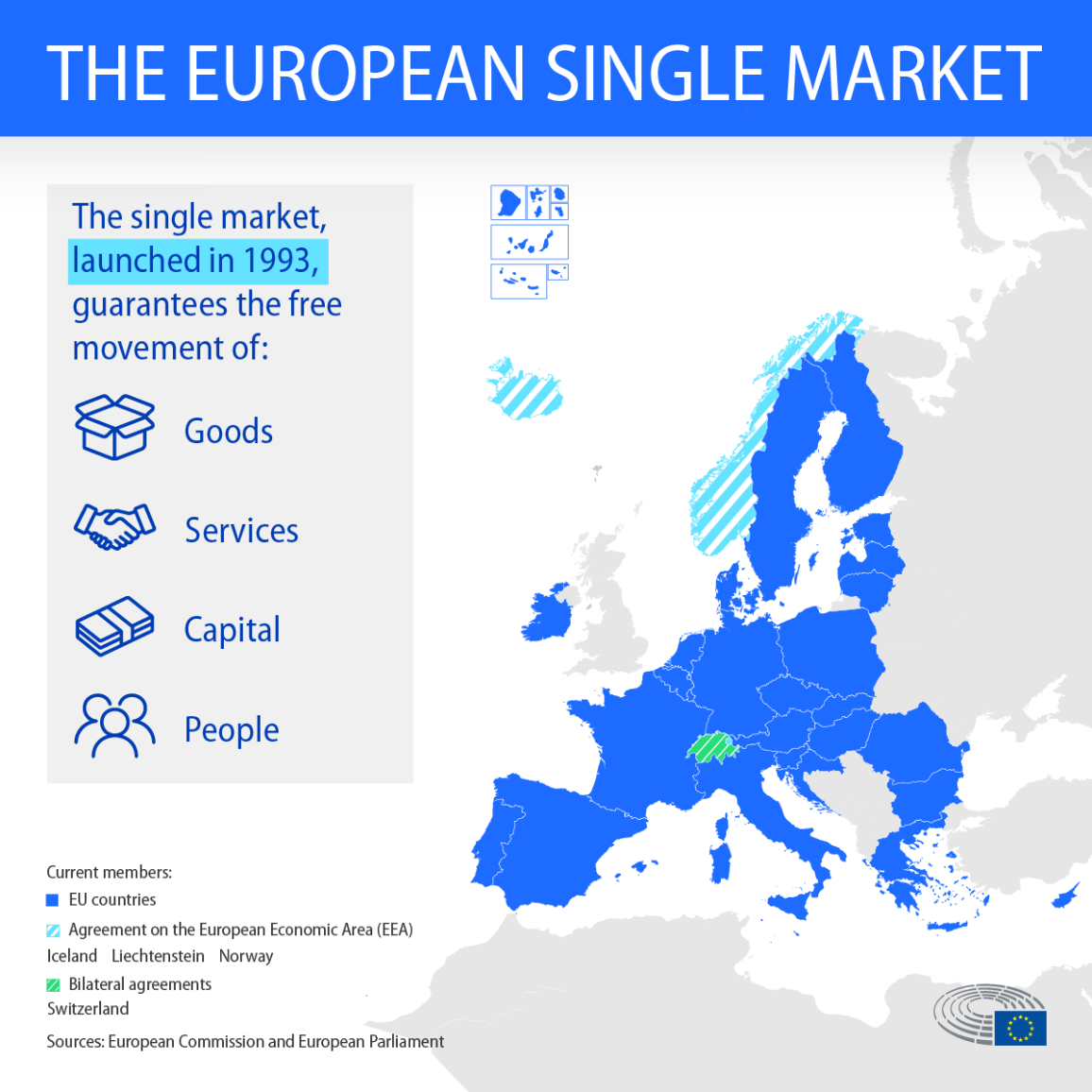Macron's Plea: A European Market For European Goods

Table of Contents
The Rationale Behind Macron's Plea
The underlying motivations behind Macron's push for a more integrated European market focused on domestic products are multifaceted. Concerns about intensifying global competition, increasingly fragile supply chains, and the urgent need for strategic autonomy are driving forces behind this initiative. A stronger emphasis on a European market for European goods is viewed as essential for securing Europe's economic future.
- Reducing reliance on external suppliers: Over-dependence on non-European producers, particularly in critical sectors like energy, technology, and pharmaceuticals, exposes the EU to significant vulnerabilities. Prioritizing domestic production aims to mitigate these risks.
- Boosting European competitiveness: By fostering a more integrated internal market, the EU can create a stronger base for its businesses to compete globally. This involves streamlining regulations, promoting innovation, and supporting the growth of European industries.
- Creating a more resilient and self-sufficient European economy: A robust internal market reduces reliance on global supply chains, making the EU less susceptible to external shocks and geopolitical instability. This enhances the bloc's economic independence and resilience.
- Protecting European jobs and industries: Prioritizing European goods can help safeguard jobs and prevent the decline of vital industries within the EU. This includes supporting small and medium-sized enterprises (SMEs) which form the backbone of many European economies.
- Addressing concerns about unfair competition: The EU faces challenges from countries with significantly lower labor and environmental standards. Focusing on a European market for European goods can level the playing field and ensure fair competition within the internal market.
Potential Benefits of a Prioritized European Market for European Goods
A stronger focus on internal trade within the EU, promoting a European market for European goods, holds the potential to yield substantial economic and social advantages. This shift in emphasis could unlock significant opportunities for growth and development across the continent.
- Increased demand for European-made products: Prioritizing European goods within the EU's internal market is expected to stimulate demand, leading to increased production and job creation across various sectors. This will be particularly beneficial for SMEs.
- Stimulated economic growth: Increased demand and production will contribute to a ripple effect across the European economy, leading to overall economic growth and improved living standards.
- Enhanced innovation and technological advancements: Increased competition within the EU, while maintaining a focus on a European market for European goods, can spur innovation as companies strive to offer superior products and services. This fosters technological advancements and improves overall competitiveness.
- Strengthened supply chains and reduced vulnerability: Reducing reliance on external suppliers strengthens the resilience of European supply chains and reduces vulnerability to global disruptions, geopolitical instability, and resource scarcity.
- Greater consumer confidence: Consumers often prefer goods made within their region, associating them with higher quality, sustainability, and ethical production practices. A strengthened focus on a European market for European goods can boost consumer trust and loyalty.
Challenges and Potential Drawbacks of Prioritizing a European Market for European Goods
While the vision of a robust European market for European goods is appealing, it's crucial to acknowledge potential obstacles and drawbacks. A poorly managed approach could lead to unintended negative consequences.
- Potential for increased prices for consumers: Reduced competition within a prioritised European market for European goods could lead to higher prices for consumers, reducing their purchasing power. Careful regulation is necessary to prevent this.
- Risk of retaliatory measures from other trading partners: Prioritizing domestic production could be perceived as protectionist by other countries, potentially leading to retaliatory tariffs and trade disputes. A balanced approach is critical.
- Concerns about stifling innovation: A lack of competition, even within a European market for European goods, can stifle innovation and reduce the impetus for companies to improve their products and services. This needs to be addressed through strategic policies.
- Balancing protectionist measures with the principles of free trade: The challenge lies in finding a balance between supporting domestic industries and upholding the principles of free and fair trade within the EU and globally.
- Difficulties in defining and enforcing "European-made" criteria: Establishing clear and universally accepted criteria for defining "European goods" is essential to avoid disputes and ensure the integrity of the initiative.
Addressing Concerns about Protectionism
To mitigate potential negative consequences related to protectionism, a multi-pronged strategy is required. This involves:
- Implementing clear and transparent criteria for defining "European goods": Clear and objective criteria are crucial to avoid ambiguity and prevent accusations of unfair practices.
- Focusing on targeted support for specific industries: Instead of blanket protectionism, support should be directed towards sectors crucial for strategic autonomy and economic resilience.
- Promoting fair competition within the EU: Robust regulatory frameworks are essential to ensure fair competition within the internal market, preventing monopolies and fostering innovation.
- Maintaining open dialogue with international trading partners: Open communication and collaboration with global partners are vital to prevent trade disputes and ensure a smooth transition towards a more integrated European market for European goods.
Conclusion
Macron's plea for a European market prioritizing European goods presents both significant opportunities and considerable challenges. While a strengthened internal market could boost economic resilience, create jobs, and enhance European competitiveness, it’s crucial to carefully navigate potential pitfalls like increased prices and protectionist backlash. Successfully implementing this vision requires a balanced approach that fosters fair competition, encourages innovation, and avoids erecting insurmountable trade barriers. Moving forward, a nuanced strategy focusing on strategic sectors and fair competition is vital to realizing the full potential of a thriving European market for European goods. Consider the implications of a truly integrated European market for European goods and explore the opportunities for your business within this evolving landscape.

Featured Posts
-
 Gangsta Granny Activities And Resources For Kids
May 21, 2025
Gangsta Granny Activities And Resources For Kids
May 21, 2025 -
 Iatroi Patras Efimeries Savvatokyriako
May 21, 2025
Iatroi Patras Efimeries Savvatokyriako
May 21, 2025 -
 Arne Slot And Luis Enrique On Liverpools Recent Performance
May 21, 2025
Arne Slot And Luis Enrique On Liverpools Recent Performance
May 21, 2025 -
 Strike Over Nj Transit Engineers Union Agrees To Contract
May 21, 2025
Strike Over Nj Transit Engineers Union Agrees To Contract
May 21, 2025 -
 Sandylands U Tv Show Air Dates Episodes And More
May 21, 2025
Sandylands U Tv Show Air Dates Episodes And More
May 21, 2025
